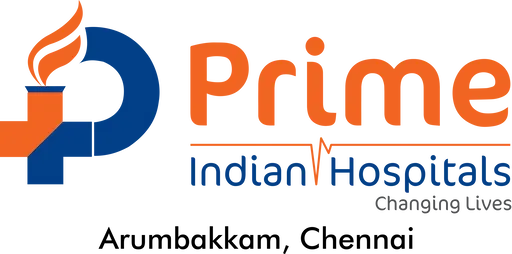Many people don’t realize how sensitive the kidneys are to sudden changes in the body. If you or someone close to you has been diagnosed with acute kidney injury, it can feel scary at first but here’s the truth: this condition is usually temporary and treatable when caught early.
Your kidneys act as the body’s filters, removing waste, balancing fluids, and maintaining overall health. When that balance is suddenly disrupted due to illness, infection, or dehydration kidney function may slow down. The great news is that with timely care and proper management of acute kidney injury, most people recover fully. In this post, we’ll explore the signs and symptoms of acute kidney injury, causes, treatment options, diagnosis, prevention, and recovery tips to help you understand and manage this condition confidently.
Causes and General Management of Acute Kidney Injury
Acute kidney injury (AKI) happens when the kidneys suddenly lose their ability to filter waste effectively often over hours or days. It can develop in hospitals or even at home after an illness, dehydration, or certain medications.
Common causes include:
- Reduced blood flow to the kidneys (prerenal causes): due to dehydration, low blood pressure, or heart problems.
- Direct kidney damage (intrinsic causes): from infections, inflammation, or toxic medications.
- Blocked urine flow (postrenal causes): caused by kidney stones, prostate enlargement, or other obstructions.
The management of acute kidney injury focuses on finding and treating the underlying cause. Doctors may give fluids to improve blood flow, adjust medications, or treat infections. In many cases, simple measures like rehydration or correcting electrolyte imbalances make a big difference. Effective management of acute kidney injury supports healing while preventing further stress or long-term damage to the kidneys.
Signs and Symptoms of Acute Kidney Injury
The signs and symptoms of acute kidney injury can be mild or severe, depending on how quickly the condition develops. Common indicators include:
- Reduced or dark urine output
- Swelling around the eyes, legs, or ankles
- Extreme tiredness or confusion
- Nausea, loss of appetite, or feeling weak
When dehydration or poor circulation is involved, prerenal acute kidney injury symptoms such as dizziness, thirst, or lightheadedness may appear especially after vomiting, heavy sweating, or illness. Recognizing the signs and symptoms of acute kidney injury early helps ensure faster management of acute kidney injury and a smoother recovery. If you notice these red flags, seek medical care promptly.
Acute Kidney Injury Diagnosis
An acute kidney injury diagnosis involves identifying the problem early to guide treatment. Doctors may use several tests, including:
- Blood tests to measure creatinine and urea levels, which show how well the kidneys are filtering waste.
- Urine tests to look for protein, blood, or infection.
- Imaging or ultrasound to check for blockages or structural issues.
An accurate acute kidney injury diagnosis helps doctors tailor treatment plans and ensure the best management of acute kidney injury for each patient.
Treatment and Management
Treatment depends on how serious the kidney injury is and what caused it. The main goals are to restore kidney function, balance body fluids, and prevent complications.
Key steps in the management of acute kidney injury include:
- Restoring fluids and electrolytes: Rehydration through IV or oral fluids helps improve circulation.
- Managing underlying causes: Treating infections, dehydration, or heart issues reduces kidney strain.
- Adjusting medications: Doctors may pause certain painkillers, antibiotics, or blood pressure drugs that affect kidney health.
- Dialysis (if necessary): In severe cases, dialysis removes waste until the kidneys recover.
The management of acute kidney injury doesn’t end once symptoms improve, regular follow-up testing ensures your kidneys continue to function well after recovery.
Complications
Without proper care, acute kidney injury can lead to complications such as:
- Fluid buildup causing swelling or breathing difficulty
- Imbalanced electrolytes, especially high potassium, which affects heart rhythm
- Chronic kidney disease in prolonged cases
These risks are rare when management of acute kidney injury starts early. Hospitals today are well equipped to monitor, treat, and prevent long-term issues.
Prevention
You can lower your risk of AKI with a few smart habits:
- Stay hydrated, especially during hot weather or illness.
- Avoid unnecessary painkillers or over-the-counter meds unless prescribed.
- Manage chronic conditions like diabetes or high blood pressure carefully.
- Seek early medical advice if you notice prerenal acute kidney injury symptoms like dizziness, reduced urine, or fatigue.
Good habits and preventive care are essential for long-term kidney health and play a key role in the management of acute kidney injury.
Recovery and Results
At Prime Indian Hospitals, most patients with AKI recover fully through personalized treatment and attentive management of acute kidney injury. Our approach focuses on more than just medical care — it’s about helping patients heal, rebuild strength, and regain confidence.
Understanding how your kidneys work empowers you to care for them better. By recognizing early warning signs, following medical advice, and maintaining a healthy lifestyle, you can protect your kidneys for the long run. At Prime Indian Hospitals, our team ensures that the management of acute kidney injury supports not just recovery, but complete well-being helping you return to daily life feeling healthier, stronger, and informed.
Read also: Urology Hospital in Chennai





